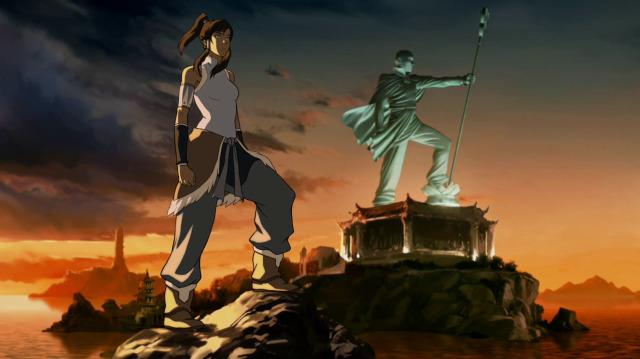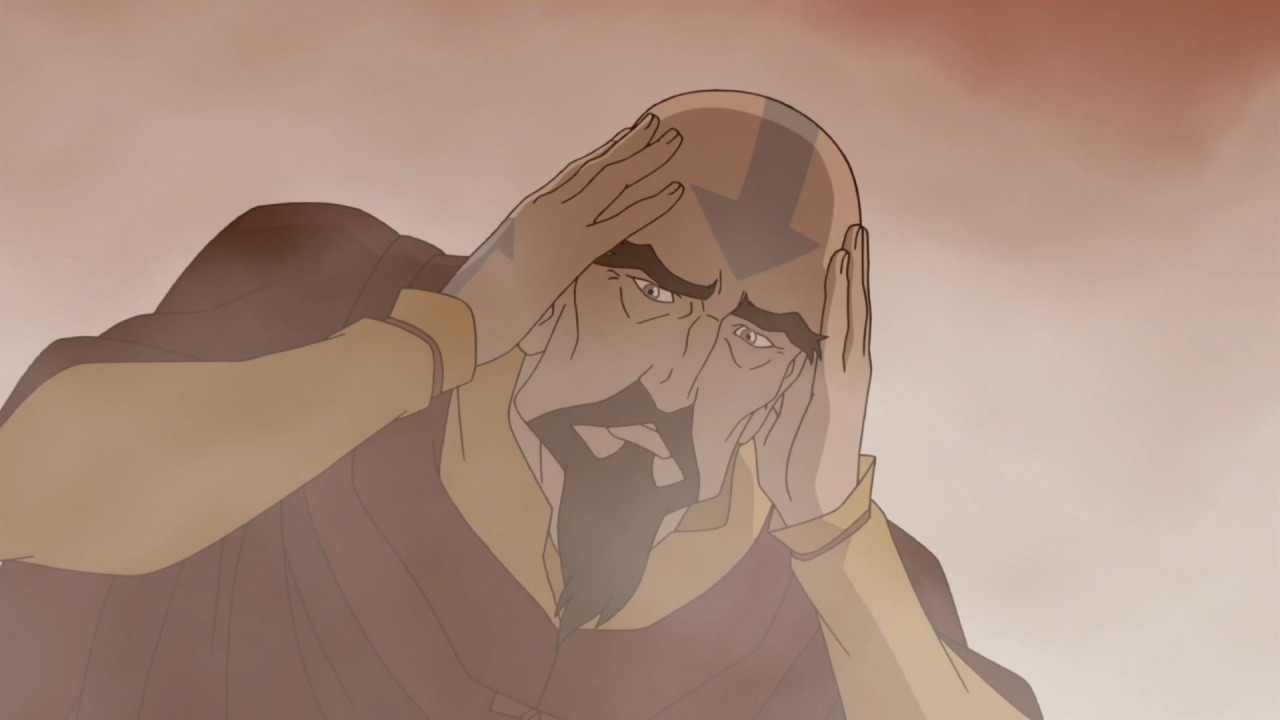Avatar: The Last Airbender (A:TLA) is back on the US Netflix and many fans are (re)discovering the show. And while A:TLA is undoubtedly one of the greatest television shows of all time, it also happens to have an equally important next gen sequel called The Legend of Korra (LoK). There’s always been a certain section of the fandom that rejected Korra but the debate about which series is better reignited with the return of the Avatar fandom. It got so out of hand on Twitter that even the Netflix account clapped back about the importance of both Aang’s and Korra’s stories.
Korra’s?story?was?important?
Aang’s?story?had?been?told? https://t.co/2rpIuQR7q1— NX (@NXOnNetflix) May 19, 2020
There’s a dissonance here. It’s almost as if fans feel like the shortcomings of LoK are a personal offense. As if anything that Korra might have done invalidates A:TLA. Personally, I refuse to believe that all of this comes from hate; I think a good chunk of it comes from a place of love. I think A:TLA was such a deeply moving story to so many that it feels like a betrayal when Korra is… different. And this is the point, this is what could easily put a stop animosity, the realization that the two series are different and that’s okay.
Rocky relationship
Disclaimer: let’s be honest here about both the shortcomings of LoK and a certain section of people hating LoK. As for the latter, it is simply pure spite with some people and there’s nothing we can do about that. The Legend of Korra could be a masterpiece of storytelling that far surpasses A:TLA and people would still find a fault in it. We could argue as to why that is, consider all the contributing factors, but really, why waste time on that. Like I said, nothing we can do about that.
When it comes to LoK’s shortcomings, well, there’s certainly much to talk about. In fact, it’s a bit of a shame how little space there is to discuss the genuine flaws of the series because of the vitriolic language that surrounds LoK criticism. Many of the show’s problems can be traced right back to Nickelodeon and how determined they seemed to sabotage their own series. From scheduling to budget cuts, Nick sure made it hard for the Korra crew to tell their story. I’m not highlighting this to excuse any and all problems LoK might have had, but it would also feel wrong to pretend that any piece of media exists in a vacuum.
Executive meddling or not, though, at the end of the day we have the product. The product, that often feels disjointed because of the uncertainty of how many seasons there would even be. There are some absolutely valid discussions to be had about character development, plot conveniences, and especially the first two seasons. LoK has many problems, some of which Avatar didn’t, and that is a part of why some fans have a hard time loving Korra’s story as much as they did Aang’s. Comparing the two is inevitable even when it’s not ultimately productive.
Living in the shadow of another
The Legend of Korra was in the unenviable position of being the next gen sequel to the critical and commercial acclaim that was Avatar. It didn’t help that much of the advertising around Book 1 was focused on LoK being “the next chapter” as if Korra was somehow the continuation of Aang’s legend. And in a way, it is: Korra is Aang in that they’re the reincarnation of the same person. The first season already tried to stand as its own show but it was still very much caught up in the reintroduction of old characters and references ranging from the Cabbage Merchant to Combustion Man.
Not that the creators could have prevented people from expecting to see A:TLA when they tuned in to see LoK. It’s only natural, whether you consider the perspective of old fans who grew up with Aang and watched LoK as it came out or new ones who have all of Korra at their fingertips the moment they finish binging Avatar. We want more of what we like and LoK is set in the same universe, features familiar characters, and is made by the same people. Korra was always going to be compared to A:TLA. Korra was always going to be compared to Aang.
Here’s the thing though, the realization that we can come back to again and again when talking about the two shows: A:TLA and LoK are different. They are different in their main characters, their structure, the stories they want to tell, the way they were made. It’s still the same world and the development of technology in Korra doesn’t make us forget that, but it’s still a different story. Not only do we not focus on the Gaang anymore, we don’t even focus on the new Team Avatar as much.
Korra could never have had the same three-season arc even if that was the intention. LoK was originally just Book 1, a 12 episode miniseries that was greenlit for more when much of that first season was already done. This gave the creators the opportunity to do things differently with Korra and diverge even more from Aang’s story. Book 1 aired, and it still very much carried A:TLA’s legacy because it had to, but it was clearly never going to be the same. So, what can we do?

Overcoming the legacy
Book 2 is generally considered to be the weakest of Korra’s seasons, for its messy and abandoned plots and soft reboot of characters. Here we have a divisive but crucial season, one that really dared to step out of A:TLA’s shadow and say: we’re doing things differently. Korra losing her connection to her past lives is one of the most controversial plot points of the franchise but it was necessary. It was necessary for both Korra and the audience to realize that we can’t rely on Aang and the past anymore. Aang’s time has passed and Korra has to figure out her own path.
The deconstruction was even stronger with Aang’s other legacy character, Tenzin. Through its protagonist and deuteragonist, The Legend of Korra decided halfway through its run that it was going to be drastically different. The first two books were already different, as discussed, but it’s almost as if they didn’t quite dare to be. There was still the sense that this is A:TLA’s world and Korra is just borrowing it. A:TLA is the main show and LoK is just the sequel. After Harmonic Convergence, there was no going back, no illusion that Korra would continue in Aang’s footsteps.
In a way, LoK took the words of its own Book 3 antagonist to heart: new growth cannot exist without first the destruction of the old. And it’s not like Korra actually destroyed A:TLA, in fact, it’s only in Books 3 and 4 that we see more Gaang descendants and Zuko and Toph themselves. But it was after Book 2 that LoK left A:TLA’s legacy and fully embraced what the potential it had standing on its own.

Making your own path
Your mileage may vary, but Books 3 and 4 are generally considered to be the stronger two seasons. The second half of LoK experimented even more with ideas that A:TLA simply never could have, dared to explore and even brought back airbending. That’s right, The Last Airbender, the title of the original series? LoK turned around and said no thank you, we live in a new world now. Say what you will about the last two seasons and it’s not like the first two are that much weaker in comparison, but it’s through the books of Change and Balance that Korra grew into its own.
Much of this is thanks to Korra herself. Whereas Avatar had the journey across the world and the three seasons being the three elements Aang had to master, the closest thing LoK has to a single unifying arc is that of its protagonist. Aang grew as the series went on, of course, but it was the Hero’s Journey and it about accomplishing a goal. In fact, there’s an argument to be made that the rest of the main cast developed even more than Aang did, as is the case with Zuko at the very least. So A:TLA was a fairly straightforward story about friends traveling around the world and saving the day and Korra is, well, about Korra.
It’s ultimately a give and take. Again, there are always arguments to be made but Korra’s journey ended up being much less formulaic and transgressional than Aang’s ever could have been. At the same time, it’s hard to argue that any of the Krew members or other LoK characters got nearly as much development as the Gaang did. Give and take. We have the groundbreaking journey that Korra goes through but this leaves less time for her companions. The structure also means that, although Korra’s antagonists are all fascinating in ways the simply just evil Ozai never was, they never develop the same notoriety.
The Legend of Korra was always going to be different and when it owned up to that, it became a daring experiment. It used and built on the world that Avatar, established, yes, but it went beyond the story A:TLA could have told. A:TLA is a lot more cohesive and Korra is allowed to go wild with what it wants to cover. That’s not to say that Avatar never dared to explore complicated topics, it crammed so much depth into 61 episodes. It’s also not to say that LoK had no consistency whatsoever, rather it was a different perspective each season.
Restore balance to the world
We could spend days on no end comparing and contrasting the two shows. Avatar did this, Korra did that, this was better, that was cooler, so on. And while yes, there are comparisons in this article as well, it is to highlight how impossible it is to truly compare the two. Just because LoK is technically a sequel it doesn’t mean that we should strictly treat it as one.
Most fans are always going to be biased towards Avatar because that was the original, the one many grew up with, the one that introduced us to this world. But to truly be able to appreciate both A:TLA and LoK, we need to stop asking questions like “Does LoK live up to Avatar?” That’s where the problems start. I do believe that it ultimately comes from a place of love as fans wish to see the continuation of Avatar when they tune into Korra. But as long as we view LoK as the same, as merely a legacy, we’re going to continue having these endless debates where some prefer the more traditional journey of Aang and some appreciate the transgression of Korra. You can still compare aspects of the two and draw your own conclusions as to which approach you prefer, of course you can. Just don’t view Korra as the next chapter of Avatar.
The Legend of Korra is not Avatar: The Last Airbender and personally, I think it was at its best when it didn’t pretend to be and didn’t try to live up to an impossible legacy. Both are good, both are amazing in their own right, and there’s no reason why we can’t embrace their differences and enjoy both.
Images courtesy of Viacom

